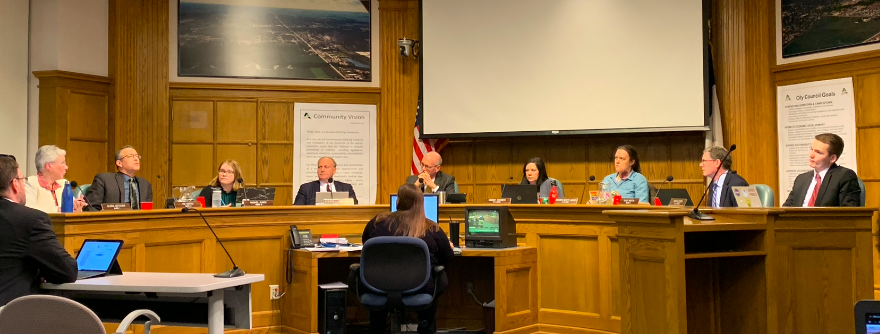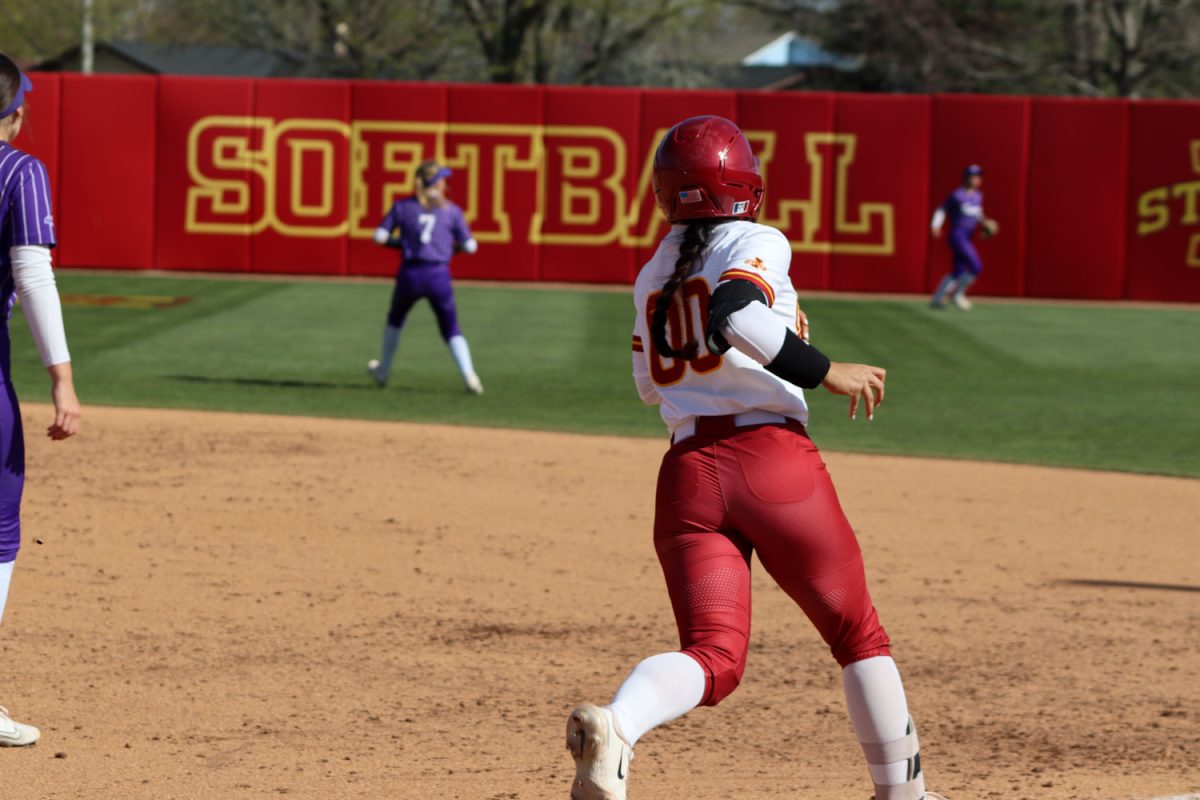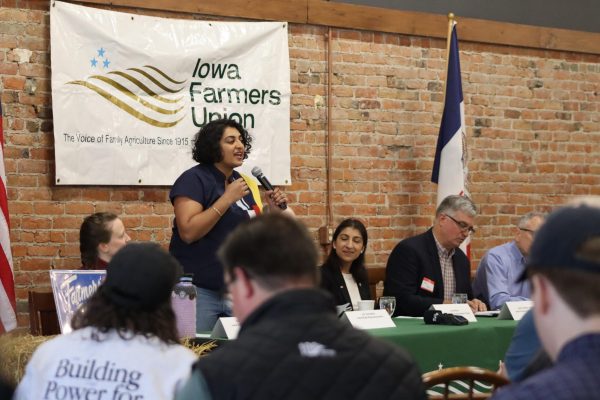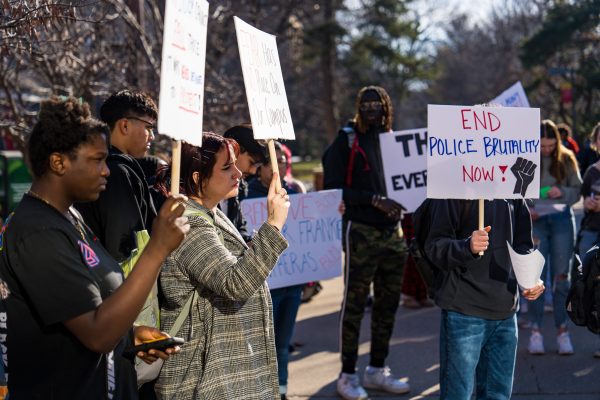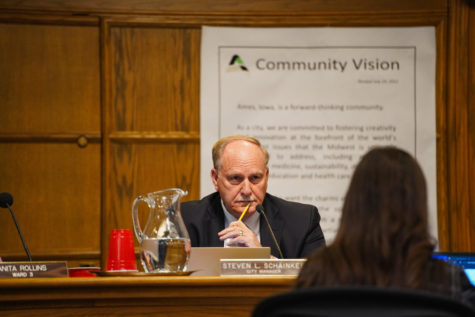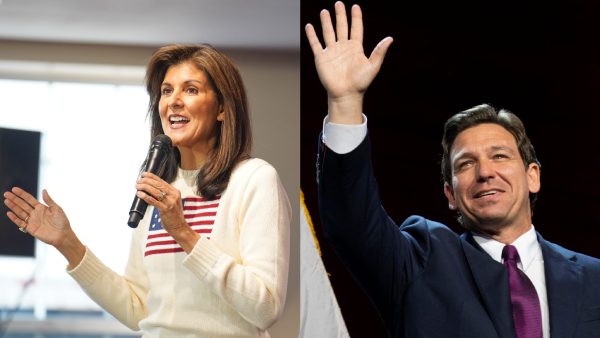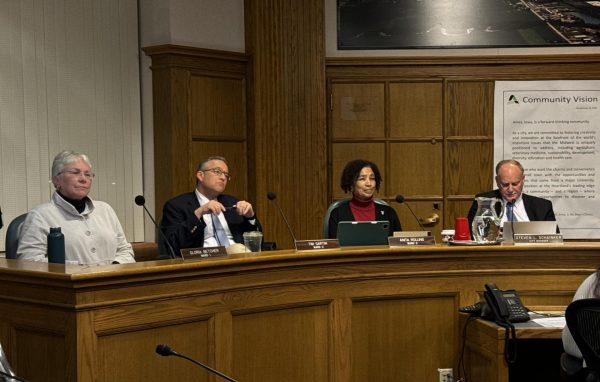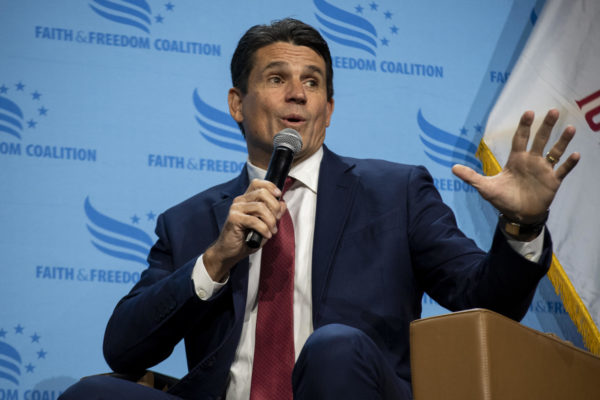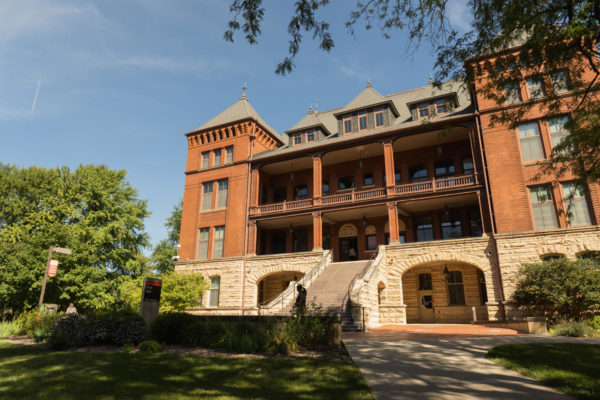City Council budget overview
February 4, 2021
Over the past week, the Ames City Council has met to discuss the city’s budget. This budget won’t only affect the city but it will impact the Iowa State community as well.
When creating the budget for the city there are several different factors that have to be considered in order to get a fairly accurate report.
“The first thing we look at is the level of service we want to provide to the citizens,” City Manager Steve Schainker said. “So we decide on the level of service and then we have to create a budget that reflects the expenditures that will allow us to accomplish that level of service.”
One thing that has had a big impact on both the budget for 20-21 and 21-22 has been the COVID-19 pandemic.
“With the virus came the closing of many downtown businesses and Campustown businesses, without any customers there weren’t as many people parking in our parking system so the revenue was drastically down and out parking fund,” Schainker said. “So we were probably overestimating by the end of this fiscal year. The parking fund would be an almost $500,000 deficit situation.”
One other event that had a huge impact on the budget for the 20-21 fiscal year was the derecho. This was the wind storm that hit the city of Ames on Aug. 10, 2020. Some of the areas this affected were the parks and recreation, electric services and so on.
Overall the budget went down by a total of 7.5 percent from last year’s budget. The proposed budget for the 21-22 fiscal year is $243,760,820 while last year’s budget was $263,520,975.
This year’s proposed budget plan can be broken down into the following categories: 34 percent going to utilities, 16 percent to capital improvement, 10.1 percent to public safety, 9.2 percent to transportation, 8.8 percent to internal services, 8.0 percent to debt services, 6.9 percent to community enrichment and 3.4 percent to the general government.
The City Council will be hearing the community’s input at a later meeting scheduled for Feb. 9. They will then move to finalize the budget at a later date.
This year’s proposed property tax will see a decrease of about 2.89 percent from last year. It will be dropping from $10.15 to $9.87. However, while the property rate tax as a whole is going down, the residential property taxes are going up slightly by a rate of 0.54 percent.
“It’s only about $3 per $100,000 of assessed valuation, which is a 0.54 percent actual increase in your, in your tax payment,” Schainker said. “So it’s essentially $3 for every $100,000 should your houses assess for that much.”
The police budget for this year has gone from last year’s budget jumping from $10.5 million to $10.9 million, which is a 3.2 percent change. Throughout this year there was a drop in murder and assault rates as well as an increase in both domestic violence calls and sexual assaults.
“I always hate to speculate too much about why certain crimes might increase or decrease. I certainly think COVID has had some impact on some of these numbers,” Interim Police Chief Geoff Huff said. “As you’re sure well aware Iowa State did not return for their spring semester after spring break, so there were fewer people in town during that time so that certainly might have something to do with it.”
There are several different reasons for a budget increase this year. Some of these reasons include new positions that have been left vacant in recent months as well the upgrading of a few positions. The police force is also adding new hybrid vehicles into the force as well. Another factor is that the police department is working on general improvements as well, especially when it comes to things like Black Lives Matter and other similar issues.
“As you know, we’re committed to justice and equality. We had many discussions and listened to our customers develop the plan to improve policing names, and we’re continuing to listen and develop and implement that plan,” Huff said. “We really feel this supports the Council goal of a diverse, equitable and inclusive community, as well as communication and engagement with the public that we serve.”
This year’s proposed utility budget has dropped by 13.5 percent from last year’s adopted budget. Last year the proposed budget was $109,782,282 while this year’s proposed budget is $94,969,672. There are several areas or subcategories included under the utility budget. Some of these areas include electric and water distribution.
The proposed budget for the electric services has decreased by -4.6 percent. Last year’s proposed budget was $59,507,515 while this year proposed budget is $56,792,448.
“And we compared to the other three, our residential rates are about 25 percent lower, our commercial rates are about 8 percent lower,” Director of Electric Services Donald Kom said. “And from an industrial standpoint, we’re on par with our other, with the average of our other three energy providers here.”
As for water distribution services, this budget has gone up by a total of 4.4 percent. Last year’s adopted budget was $1,579,364 while the proposal for this year is $1,648,534.
As mentioned before, the Council will be allowing for community input on the budget Feb. 9 and will move to finalize it on a later date.

